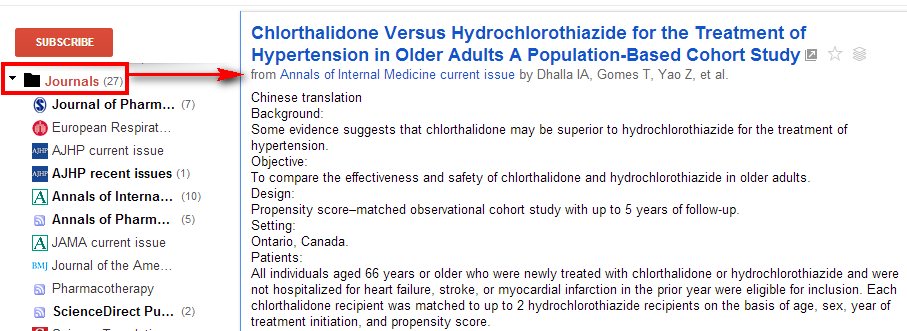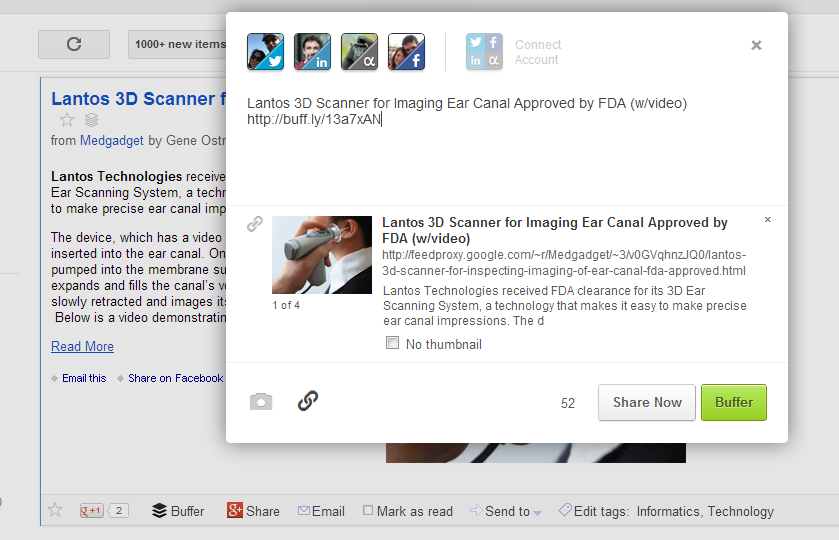The news that Google Reader is going to be sunset in July of this year has created somewhat of a panic among many, including myself.  The internet has been abuzz with articles on potential replacements. I’m sure people will look at many of these and find something to meet their needs, but what I’ve found thus far has been disappointing. I assume that’s because Google Reader was truly more than just a RSS aggregation tool for me.  A lot of the functionality that I used was the result of many third party developers that wrote plugins and scripts to do everything from rearranging the information on the page to removing ads. Google Reader was popular and mature, and it showed.
I don’t know how long I’ve been using Google Reader, but I can’t remember what I did before it existed. Google Reader was my Evernote before Evernote was even a product.
The loss of Google Reader has forced me to come to grips with a couple of truisms. First, Google provides some pretty incredible services for free. Let’s face it, I’m deeply integrated into the Google way and I don’t pay a dime for any of it. I use Gmail, Google Drive, Google Docs, YouTube, Google search, Google+, and Google Reader (while it lasts). But I don’t pay for any of it. Should I expect more loyalty from a company that has given me everything for nothing in return? I don’t know, but it’s worth considering. And second, things in the cloud can be taken away in a snap. I’ve been beating the cloud drum for a few years now, and I believe in what it has to offer, but there’s a downside. I don’t know how many items I have cataloged in Google Reader, but it’s a lot, going back several years. I have no idea what I’m going to do with that information.
Google Reader is fast and efficient. I can cover a lot of ground quickly and easily by navigating via the keyboard. I move from one article to another with ease. When I find an article that looks interesting I stop and read the first paragraph. If it’s compelling I’ll expand it and read the whole thing. Simple.
How I use Google Reader:
1)    A simple RSS aggregator – Like many, I use Google Reader to aggregate all the websites that I read on a regular basis. It’s simple, but eloquent.
2)     As a method to read journal table of contents (TOC) – This is part of #1 above. There are services out there that will email the TOC of medical journals each time a new issue is published. I grab the RSS feed from those journals and send them to Google Reader. So each time a new issue of AJHP, Pharmacotherapy, JAMA, etc. is available I see the contents in my Google Reader feed.
3)     Starred items – When I find an article worth saving I can quickly save it as a favorite (star it). The article no longer appears in my feed because it’s been read, but I can quickly access it if I need it. I use this quite a bit to hang onto articles for my Saturday Morning Coffee posts. I see something during the week that I want to mention, I “star it†and then pull it up on Saturday morning when I’m ready to use it. The beauty of it is that it doesn’t clutter up my feed, but it’s quickly accessible.
4)     Tags – Google Reader offers a quick and easy way to save articles and sort them: tags. This is similar to Gmail and Evernote. It’s very convenient. I can’t count the number of articles I have saved. With Google’s search capabilities it doesn’t matter how many I save because all I have to do is search my tagged articles for the item I’m looking for. I frequently use tags to collect information for presentations. For example, I’m giving a presentation in May at the Southern California chapter of HIMSS. I’ve created a tag called “SoCal HIMSSâ€. When I see something that might fit into my presentation I simply tag it SoCal HIMSS. Done. It’s saved and I can pull it up and look at it anytime I want.
5)     Google Alerts – I love roaming around the internet, but I can’t possibly search every website for interesting information. Instead I’ve set up several Google Alerts using keywords of interest – Pharmacy, Robotics, HIT, Informatics, Big Data, etc. When Google finds a new article on the web that contains one of my keywords it sends it to my Google Reader feed where they sit patiently until I’m ready to read them. This is a great way to find information that I would have otherwise missed.
6)     Control of social media – Google Reader’s integration with my social media feeds is crazy good. I can share links and articles directly from Google Reader to any of my favorite social media sites including Google+, Twitter, LinkedIn, Facebook and App.net. I use this feature all the time, and I’m finding it difficult to replace. This is important to me.
Finding a replacement for everything I do in Google Reader is starting to look like an impossible task. I’ve had many people make recommendations, and I am thankful, but nothing fits the bill. I don’t want pretty pictures like Feedly, Currents, Flipboard, and so on. I find those services cool, and I use them, but they’re not the same thing. They’re fun to browse around in while I sip coffee in the morning, or when I just want something different, but they are not designed for mass consumption of information quickly.
I suppose I need to say thank you to Google for providing me with so many great services for free, but I have to say I’m bummed.







Leave a Reply